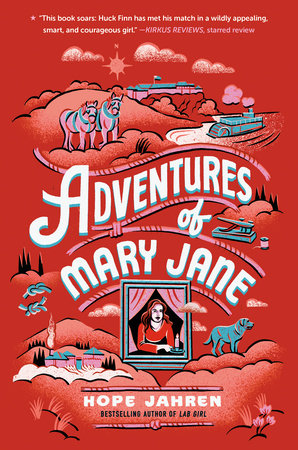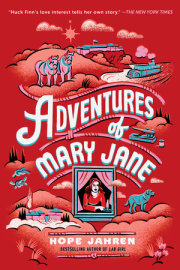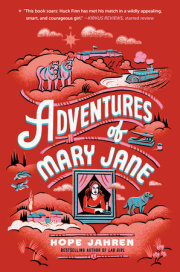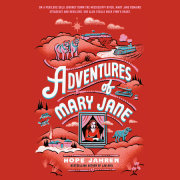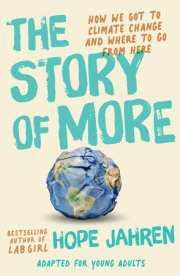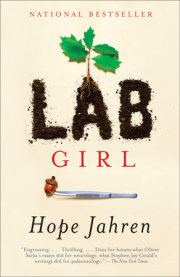CHAPTER I
—The Fire—
We smelled the fire before we saw it.
It didn’t smell like a fireplace. It didn’t smell like a campfire, either. Do you know what a musket smells like after the bullet’s been fired? Or singed hair on a branding iron? Or a shirt forgotten under the iron? Or a wet saddle too near the campfire? Or maple syrup boiled over onto coals? The fire didn’t smell like any of those things. It smelled like all of them mixed together.
It wasn’t the smell of something burning. It was the smell of
everything burning.
It smelled like the end of the world.
When we got closer to the fire, I recognized Ma by her outline. A small black figure with all Hell coming undone behind her.
When we got closer still, I saw that it was her back to us. I don’t know how she stood the heat: I had to squint my eyes against the hot blast, and she was a good ten feet closer to the fire than I was.
Then again, Ma is extraordinary. She’s more than tough. Her softest parts are made of steel and hard leather. And smart, too. She can tell exactly what I’m thinking, just from one look at my face. And I can from hers, too. We don’t get along overly well.
I walked closer, until Ma turned around and saw me, and I saw her, against a background of heaving flame.
And the look on her face said,
Not again. —Starting Over—
We dug. We dug until we couldn’t dig anymore. And then we dug some more.
Hansel tried to help, but the ground was too frozen for him to do much besides bust up his paws, and finally, Morfar made him back off. He didn’t like not pitching in, and made sure we knew it by barking now and then.
Bam! Ka-POW! We heard a terrific noise behind us. The sky lit up, then splinters rained down. It came from at least a mile away, so it didn’t rattle us much. It just meant that the fire had burned its way into the gunpowder shed, was all.
Morfar paused and leaned against the shovel. “
Ja then, we go down to Fort Snelling a little early this year.”
Ma gave me a look that told me it was my turn to dig. While I did, I felt snow splattering onto the top of my head. It was coming down in big wet clumps and that was a lucky thing. Fire can’t jump across snow, and it sure can’t jump over slush. Tonight we’d sleep in the barn, less than a hundred yards from the inferno, but just as safe as if we were off on Mackinac Island.
I stopped digging when a metal box showed itself out of the dirt. It wasn’t filled with diamonds, but it still counted as treasure to us. Four times a year, Morfar buries the last quarter’s record books near the creek where the ground doesn’t freeze as hard, so he can answer to the Company in case of raids or thieving or fire.
Under the records-box was blankets and medicine that Ma had put in, wrapped in waxed leather. We’d have that, and the clothes on our backs, until we heard the ice break up on Lake Winnipeg. That’s what means the Red River’s flowing, so you can travel south on it.
It’s five hundred miles down to Fort Snelling. We know the way because we go down every year to spend the summer and get me at least some schoolroom education. We usually go in May, but this year it’d be March.
“Same as in otten-tirty-tree after the last full burn-down.”
“You were a baby, Mary Jane,” Ma added, “you probably don’t remember.” She said it as if I hadn’t paid enough attention at the time.
“Each an’ every trading post is built on the cinders of the last,” sighed Morfar, and he should know, as he’s been head clerk for the Company since 1821.
There’s a difference between being disappointed and surprised, and he was the first but not the second. Really, there’s so much gunpowder stored in the Northwest Territory that a person ought to be surprised every time a trading post
doesn’t burn down, given the oil lamps, the candles, the tobacco pipes, and the rum-soaked characters lighting them.
Ka-POW! Far behind us, we heard another keg go off like a cannon. We wouldn’t be getting any sleep that night, or maybe even the next.
Ma and Morfar hoisted what we’d dug up onto their backs while I filled the hole. They turned and walked towards the barn and I followed them, dragging the shovels behind me.
I could have walked beside them, but I didn’t. I followed instead.
It was second nature, as I’ve been following Ma and Morfar since I was born. They go down south in the spring, and up north in the fall, and I’ve followed, year after year, for my whole life.
Well, of course I do. That’s what you do when you’re a little kid. But now that I’m fourteen, it feels different. There are times when I don’t want to follow, but I don’t know where it is that I want to go, either.
—Next-Best Everything—
We slept in the barn that night, and every night until we left. We didn’t have our goose-down comforters, but we had the next-best thing as wool blankets. We didn’t have our flannel pajamas, but we had the next-best thing as long underwear. We didn’t get any peace and quiet, but we had the first-best thing of a carnival going on all around us.
To voyageurs, a fire at the trading post means three things, all of them good: sleeping inside, finishing off the rum, and heading south early. I should have mentioned tobacco as well, as there’s no way to trace inventory after a burn-down—same goes for spirits. The sleeping inside part is just to make the counting of who got out in time that much easier.
Row on, row on, another day, Ply, ply the oar and haul away! After the whaling songs started up, we knew the voyageurs would be up all night long and so would we. I, myself, love to hear them, but Ma won’t let me join in for fear I might have some actual fun for once in my life.
Instead, I sat on a smoked-up buffalo skin, sipping snow-melt and freezing my insides. We didn’t have our copper tea-kettle, but we had the next-best thing as a pewter one that Ma wouldn’t let me drink out of because the lead in it would make me grow up stupid.
“It’s too late for me,” said Morfar as he gulped down his tea.
When we’d come back in October, there’d be a brand-new trading post built from the ground up and we’d get our old tea-kettle back because metal doesn’t burn. That one’s made of iron so if I do turn out an idiot we’ll know it wasn’t from that.
“
Ja, soon as the snow’s melted, the Company, you betcha, they’ll send a big crew to clean up and start building.” Morfar had cheered up.
“They’ll also send a tally-man to sift the ashes for teeth and start replacing.” Ma had cheered down.
Anyway, she’s right: a voyageur’s life isn’t easy or long, and however they got to us, there’s more where they came from.
Morfar slapped both thighs and stood himself up. “
Mari-yane, let’s me and you go for our walk. There’s a fine full moon tonight, the kind you should use for some-ting.”
Hansel ran to the door and barked, wanting to go with. Him and me and Morfar headed to the pines for our loop through the woods. It was the same route we’d taken since I could walk, and before that Morfar carried me, which I even sort-of remember.
Sure enough, the moonlight reflecting off the snow was bright enough to make us squint. It made the birch trees glow like great bleached bones, like the ribs of the dead whale Morfar found as a boy back in the
hjemmeland. He said they were so hungry they ate the rotten blubber . . . but not as hungry as the next year, when they boiled and ate their shoes.
“One, two, tree, fjour, five . . .” I counted trees, copying Morfar’s
hjemmeland accent.
“Six, sept, huit, neuf, dix!” I switched to the numbers we used with the voyageurs.
Morfar gave me a sum, inventing the numbers as he went.
“Tirty-five and seventy-six and fjorty-one less sixty-two and eleven less tventy less sixteen and fifty-tree less tventy-one and sixty-six and tventy-five less tirty-seven less fifty and seventy-two anna tventy-otta makes . . .”
“Two hundred and one!” I completed his thought.
He switched to money: “A dollar and a qvarter plus six nickels and tree dimes less fifteen cents anna half dollar less a dime and two nickels less a dollar and otta cents makes . . .”
“One dollar twenty-eight cents!” I said, more or less automatic.
I have a gift for numbers, and I got it from my morfar. He can’t read, but he sure can cipher, which is what has kept him indoors as a clerk instead of outdoors as a trapper, freezing his toes off one by one.
Copyright © 2024 by Hope Jahren. All rights reserved. No part of this excerpt may be reproduced or reprinted without permission in writing from the publisher.

